The reasons we go RVing are as varied as the places we take our rigs. Perhaps it’s human nature itself that drives us, but the pull of beauty and the longing to explore manifests differently in each camper —from the deep woods to the big-city skyline, from the wide-open desert to the seaside park. And as we evaluate an RV purchase, we’re often left wondering which RV options really matter for in our perfect model?
Your RV lifestyle makes all the difference.
The fact is that the RV options that are important to specific buyers are as unique as the 11.2 million households in the U.S. who own RVs. So, diving deeper, we turned to our Facebook and Instagram audiences to see what they thought. Not surprisingly, responses were all over the map. From Class A owners valuing more space to small pop-up campers wanting to fit into the garage (and not offend HOA rules), the RV features that folks can’t live without, reflect how they use their RVs.
While most RVs don’t have space for features like a built-in washer and dryer, if you’re going to live full-time at a resort or private RV park with water, electricity, and sewer hookups, it might make sense. On the other hand, simply type “laundromats near me” into your mapping app and get your many loads of laundry done in less than 90 minutes while you make lunch in the parking lot or go grocery shopping. It’s your choice. Each has its pros and cons.
RV Features and Options We Heard Strong Opinions About
- Usable storage
- Full-time bed and separate dinette area
- Counter space and functional kitchens
- Dry bathrooms
- Solar capabilities and other boondocking packages with higher clearance or upgraded suspension, low power fridges, etc.
- Extras features like gas fireplaces, washer and dryers, reclining chairs vs. sofa loungers, insulated windows and heated spaces below their rigs for winter comfort.
Now, whether you want these features depends upon how you want to use your RV, and where you intend to take it. Let’s take a deeper look.
Storage: Now, where did you pack those jumper cables?
Smart storage is important in making a small space feel comfortable. (Regardless of how long you’ll be out.) If you’re going full-time, you’ll need storage for not only this season’s clothes and gear, but for all the other seasons too. And speaking of boots, how many do you actually need?
Ask Yourself …
- How much food can you reasonably store without looking like you’re setting up a concession stand?
- How long do you intend to spend away from a grocery store, or other essential services?
- What type of extra equipment, outdoor toys, musical instruments, games or hobbies do you plan to bring with you?
Pro Tips!
Just as storage space is important, so is how you pack it — you’ll need the things you use most often most accessible. Think of your RV like a Swiss Army knife: Everything must have multiple functions, from clothing to cookware. If it’s only got one use (and it’s bigger than a pocket knife), you’d better have a good reason for bringing it. Example: Hutch’s guitar is big, bulky, and you can’t cook on it. But he can’t imagine living without it. So, what’s your guitar?
Full-time bed/secret dinette: Can sleeping and eating share a single solution?
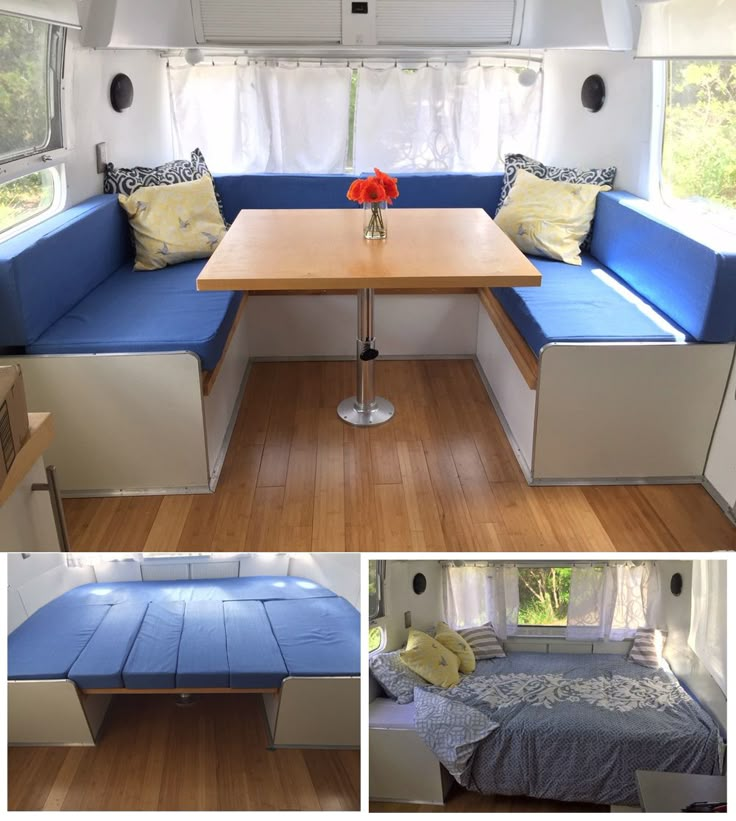
Nothing beats being able to simply pull over after a long travel day, and collapse into your own comfortable bed. Needing to convert the space from suppertown to snoozeville can be one of those tediously repetitive steps that might have you reconsidering your full-time dreams. But for your short RV vacation, this nightly novel ritual could provide the perfect distraction from the routine of daily life. Perhaps that tiny, “cuter-than-cute” RV is what you’ve been looking for after all!
Ask Yourself …
- Are you planning on working from the road out of your RV?
- What do you need to accomplish your work in terms of space, power and equipment?
- Will you have visitors, how frequently? How many other sleeping areas will you need?
- Will you bring pets? What are their space needs? How can you keep them comfortable if you leave them for some time alone in the RV?
Pro Tips: Invest in a quality mattress, regardless of how you set up your bed, quality sleep is priceless. In addition to serving as a dinner table, prep area, and where we have our “serious conversations,” our dinette serves as a computer workspace. We’ve invested in quality laptops that both do their job as well as quickly fold away to convert from office to breakfast nook.
Counter space in a functional kitchen: Is there enough room for all the cooks in the kitchen?

In our kitchen we have two stations, the chef at the stove. And the sous chef sitting at the dinette. If you think about your counter space the same way as your cookware, with every surface having multiple purposes, you can prepare any dish in just about any sized kitchen.
Ask Yourself …
- How many people will you regularly cook for?
- What season will you be traveling?
- How often will you use an outdoor kitchen? Would a portable camping stove suffice for those times that you want to cook outside?
- Do you want to focus on an outdoor kitchen as opposed to the inside one?
- Do you really need that huge kitchen sink or will stackable tubs do the job just as well?
Pro Tips!
Focus less on space and more on quality, versatile cookware. Invest in good quality cookware and kitchen tools that can do their job on the inside stove, on camping stove, or on a campfire. Find creative recipes that will make you excited to prepare food that’ll rival your scenic locations. Look for inspiration everywhere to make your meals more of an event.
Dry bathroom: So you shower where you sh…sit?
Dry bathrooms provide a separate space for the toilet and shower. In a wet bath setup, the two move in together, saving space, but there are disadvantages. (Like a higher risk of soaking the toilet paper.)
How you camp and where you camp will determine your toilet-shower space needs. If you’re going to be at campgrounds with toilets and showers, do you really need a larger bathroom at all? Many of the folks who camp this way tell us that they rarely even use their toilet beyond nighttime necessity, and have never actually used their shower except as a storage area.
Ask Yourself …
- Is the convenience of going closer to home more important to you than the requisite dumping and cleaning of holding tanks?
- Will you be camping in private RV parks that offer full-hook ups, including sewer?
- Will you be boondocking for weeks at a time? Hint: You may not even use your built-in toilet.
Pro Tips!
If only all small American towns were like those found in Alaska where many gas stations and laundromats offer clean showers for a small fee. Be honest: Are your vacation hygiene standards the same as your 9-to-5 life? If you’re taking a short trip, you’ll probably find that a shower every couple of days will be sufficient.
Most of our full-timing friends, even those working full-time jobs, find that they don’t prepare for their day in the same way that they did when going into an office. I’m not saying that we’ve all let ourselves go, but thinking that you’ll carry-on bathing as you have in your house or apartment is probably unrealistic.
A 24-hour gym membership to a nationwide chain can also be a great showering option for folks taking longer trips in their RV’s. Also, local recreation centers and community pools have a daily membership fee where you can grab a hot shower – don’t forget your flip flops!
Solar capabilities: Am I really, really going off-grid?
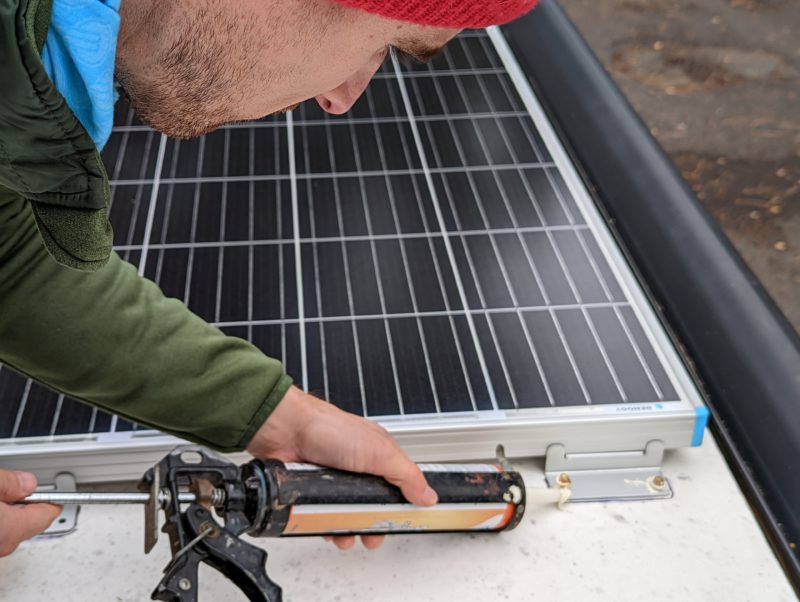
Solar has become so popular with RVs that many manufacturers now offer a solar package or solar-ready models. This might mean that there is some solar capacity already built-into your model or can be installed as an additional package. (Buyer beware: The price might be four times more than if you do it yourself!)
Even if you’re planning on parking it at an RV resort offering electrical service, you might need a night or two off-grid when traveling. That’s when even a small solar powered system can be a bridge between plug-ins. If you intend to do any boondocking, installing an appropriately-sized solar system will provide you with years of free electricity!
Whether you purchase the solar package (or install your own system like many other RVers) might depend upon your skill set, timeline, and comfort with basic math and a crimping tool.
Ask Yourself…
- How long do you want to be away from an electrical outlet?
- Can your current battery capacity provide enough to sustain during that time?
- How comfortable are you working with electrical wiring?
- Do you have an interest in learning how solar works?
Pro Tips!
In 2010 when we first got our RV, we had no idea how to install solar power. We just knew that it worked. Since then, we’ve become solar ambassadors and educators. Solar curious? Take our Solar DIY Quiz to see if you have the necessary skills to plan your own solar installation.
Extra fancy features: Am I going to use it enough to make it worth it?
Decisions about RV features all go back to how and where you intend to RV. Many of these extras are associated with colder weather camping – gas fireplaces, extra insulation, heated underbelly, etc. If you don’t see yourself taking advantage of late season camping in the autumn or even boondocking in the winter, then perhaps these aren’t worth the extra cost. However, if you love the idea of being curled up with your favorite throw blanket, a piping mug of tea in your hands, watching the leaves fall from your cozy camper with its quiet gas fireplace, then maybe it’s worth it. Just remember that these winter options have both upfront and secondary costs.
Same goes for laundry machine options and living area furnishings — convertible sofa or theater seats? It’s all about how you actually want to live in your RV.
Just remember that the bigger your RV is, the more you need to plan out your route, your stops, and your campsite reservations. Perhaps the extra space, comforts and features are worth the extra hassle. Or, perhaps you want to go lightweight and fit into any open campsite from sea to shining sea. Most of us will land somewhere in the middle with a combination of space and features that feel just right — just right for us!
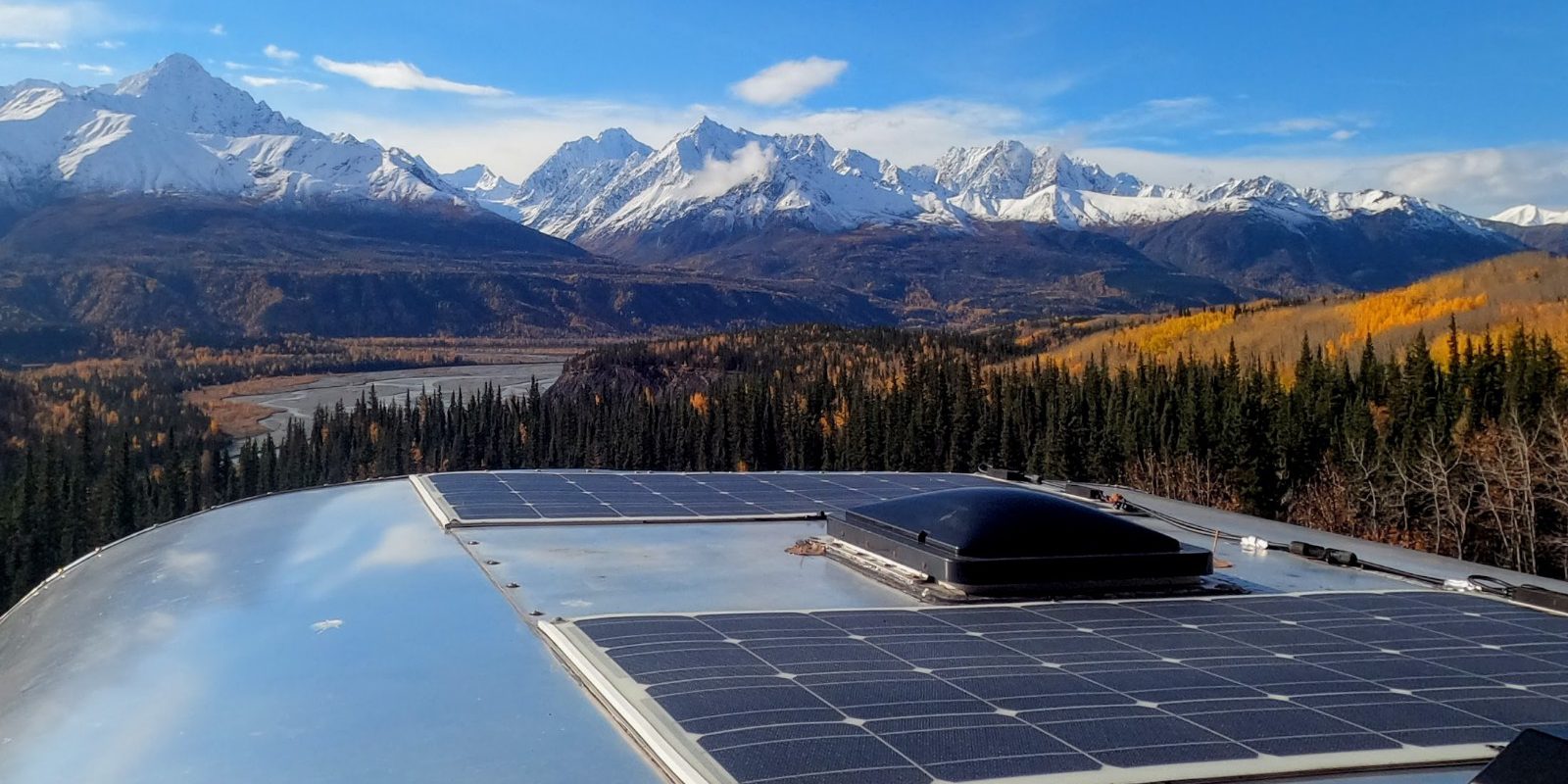
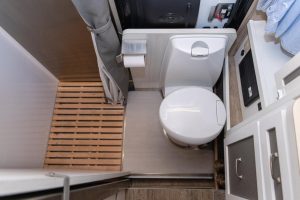
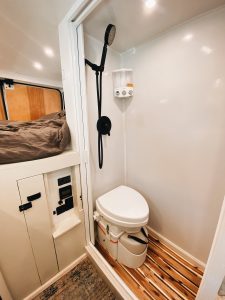
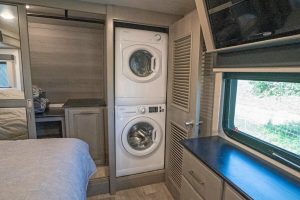
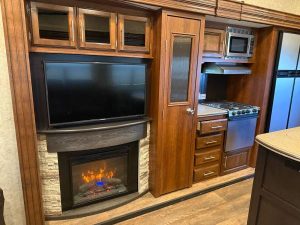
Leave a Reply